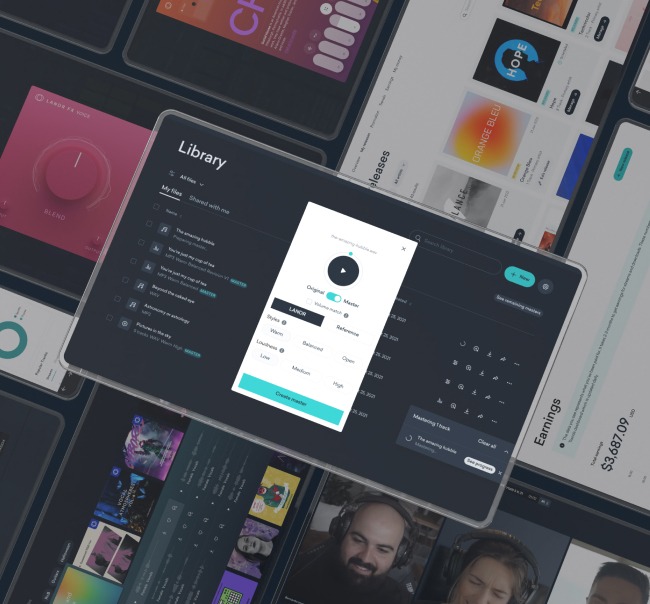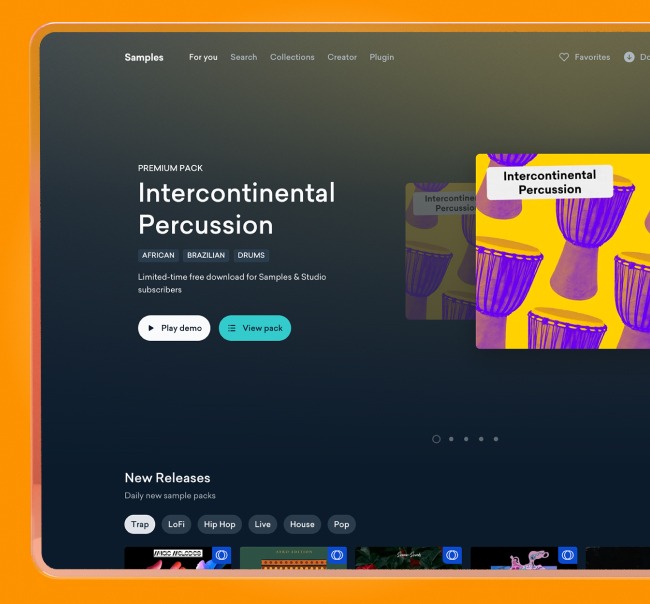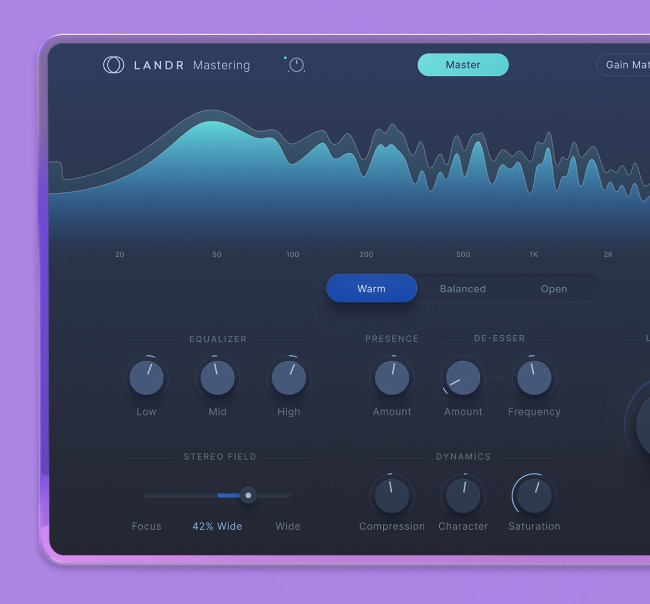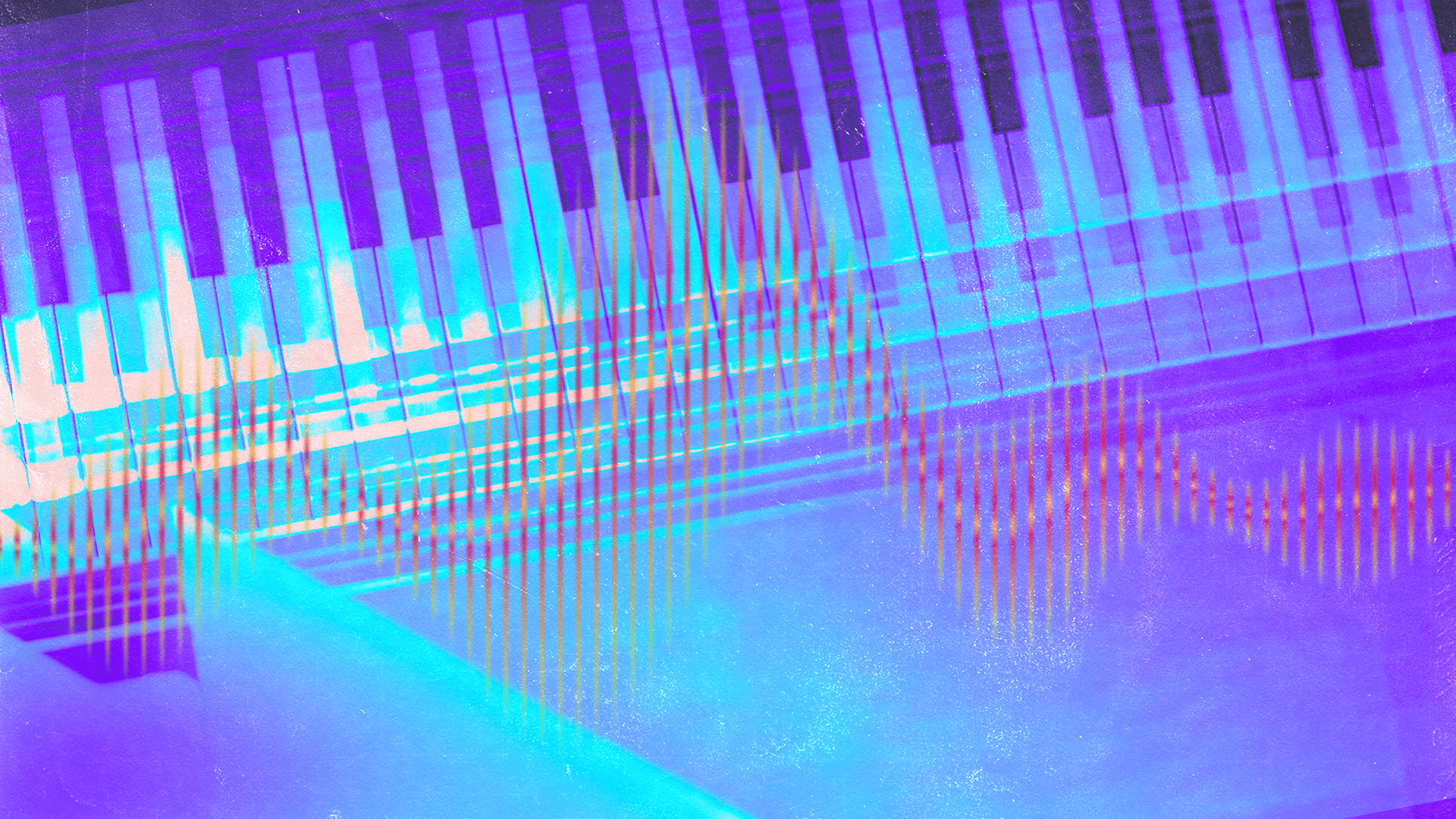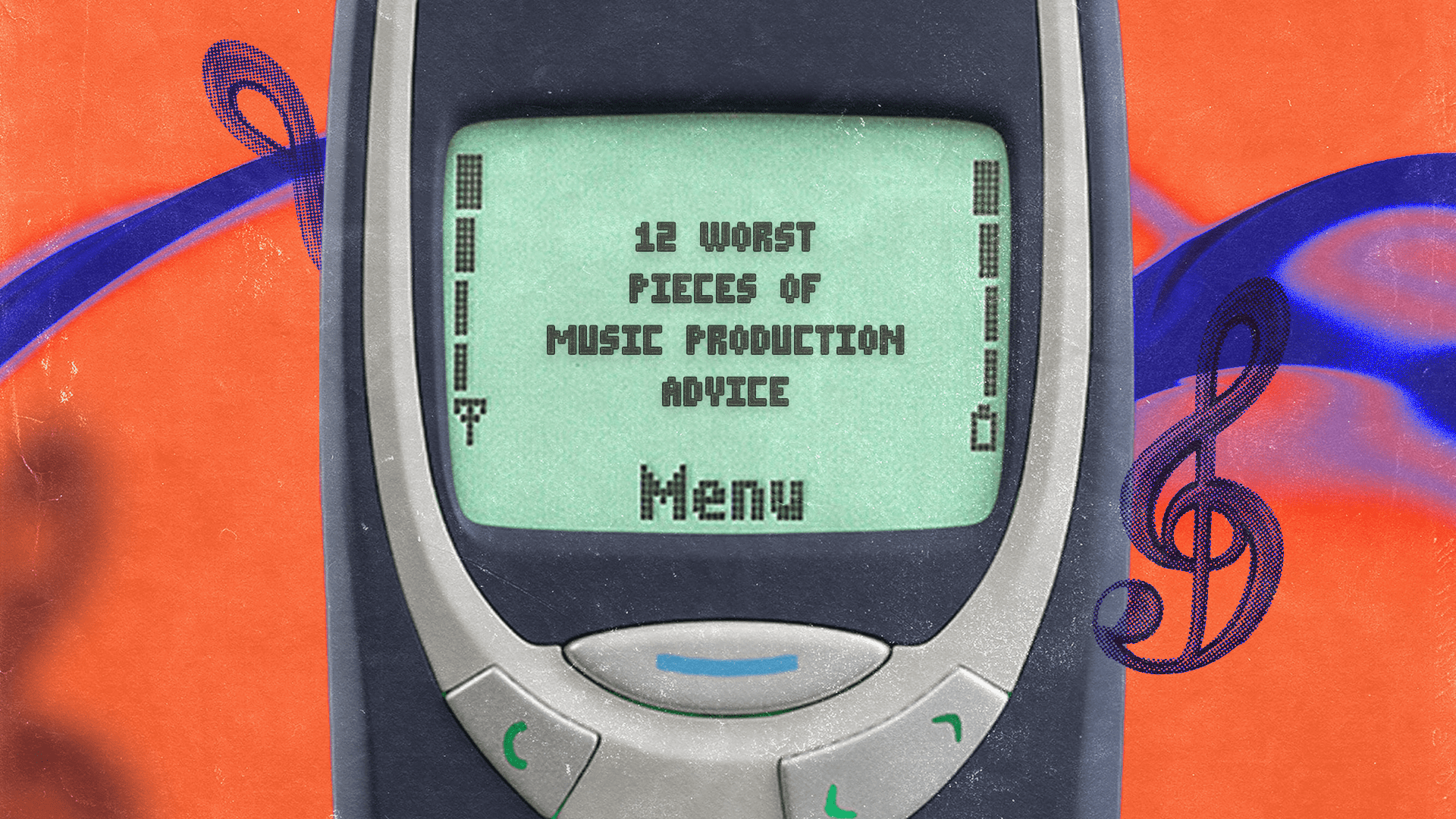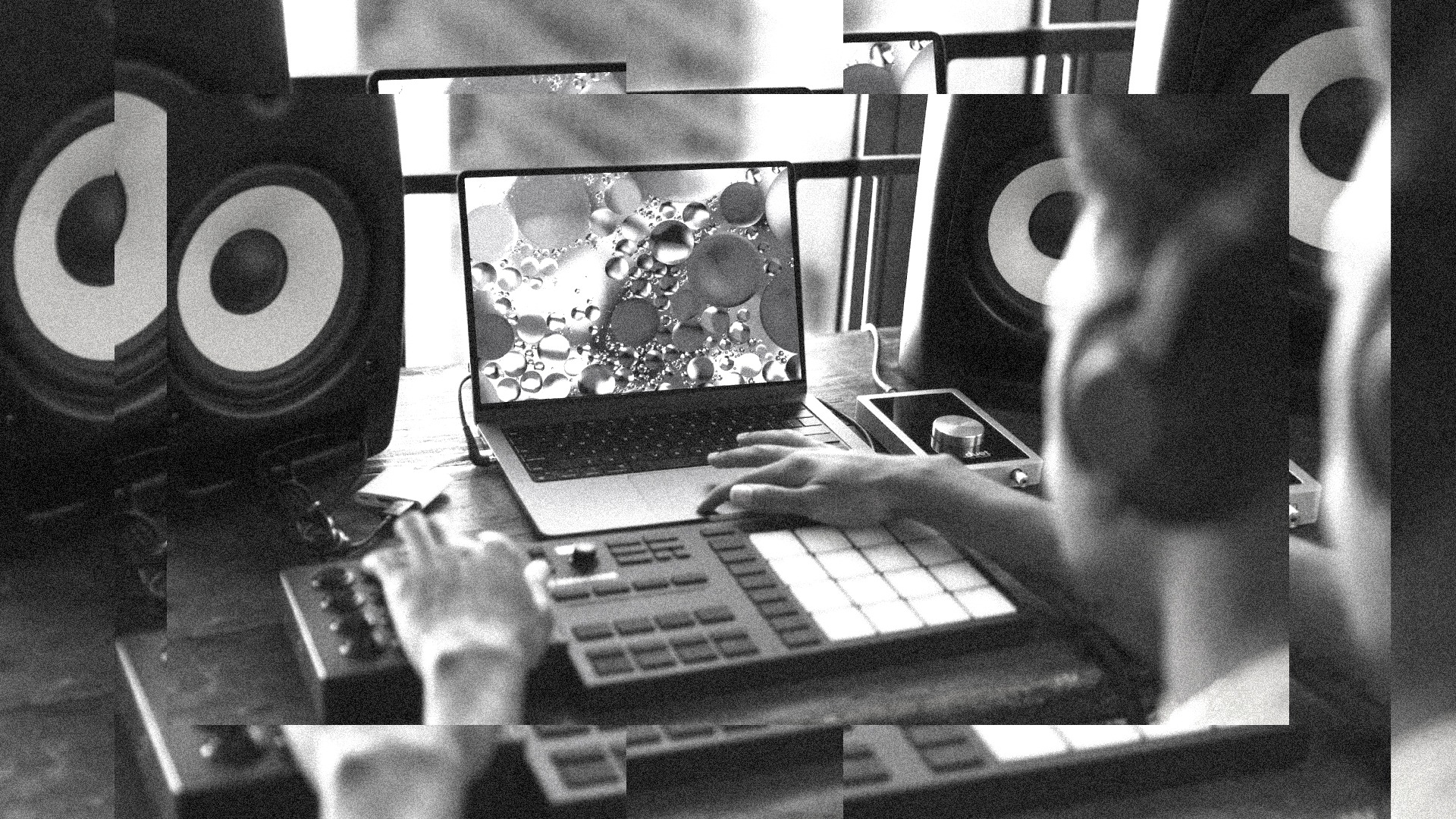
How to Become a Music Producer in 7 Steps

Becoming a music producer is one of the best ways to be creative if you love music.
A music producer is the person who brings the vision of a recording project to life. They can be responsible for specialized roles like mixing and mastering, or they can be involved with everything from songwriting and arrangement, to collaboration, to post-production.
In short, music producers help the artist record, polish and distribute their music—and sometimes they are the artist as well.
But what does it really take to become a music producer? What skills do you need to develop? And what equipment do you need?
The good news is it’s easier than ever started, get your music on Spotify and get heard.
In this article I’ll break down the basics of getting started with music production and show how you can take your first steps.
How to become a music producer in 7 steps
What skills does a music producer need?
While the requirements to become a music producer aren’t set in stone, there are a few skills that most successful producers have in common.
The first is a solid understanding of music theory. You need to know how the different parts of music fit together, and how to make them sound good.
The second is technical knowledge. To learn how to become a music producer, you need to master the technology involved, including sound engineering and digital audio workstations (DAW).
Music producers also need creativity and patience. You’ll need a passion for creativity and an ability to find inspiration to fuel your journey.
Now that you know what knowledge you need to start producing music, let’s dive into the specific ares where you’ll need to build your audio production skills.
How to become a music producer in 7 steps
Thanks to modern technology, it’s easier than ever to learn how to be a music producer from home. Once you master these steps, you may want to have access to a professional studio—but home is a great place to start.
1. Build a basic home studio
Depending on what aspect of music production you want to focus on, the demands of your setup will vary.
But in most cases, for anyone starting out, a simple at-home setup will do. Here’s a basic gear list for any upstart music producer.
Home studio gear checklist
- Laptop or computer - Mac or comparable
- Digital audio workstation (DAW) - Ableton or Logic
- MIDI controller - Arturia Keylab or MiniLab
- Software instruments & effects plugins - LANDR Plugin Bundle
- Digital audio interface - Scarlett 2i2
- Headphones - Shure SHR840A
- Microphone - Shure SM58
- Desk, chair and room for working
Of course, if you want a detailed break down of each product on this list’s functionality and value, we’ve covered our favorite home studio gear suggestions in our home studio guide.
With everything on that basic gear list you’ll be able to write, record, mix and master your own music a semi-professional level.
2. Learn how to use a DAW
Your DAW is the main environment where you’ll be creating your tracks. The term stands for Digital Audio Workstation.
It’s the computer program where recording, editing, sound design and arrangement all take place. Those essential functions make the DAW the centrepiece of your creative workflow.
In fact, most producers today use their DAW as a songwriting tool as well. It’s often easier to jot down ideas and flesh them out as you go than to envision an entire track in advance.
With that in mind, you’ll likely be spending a lot of time in your DAW as you learn how to become a music producer.
That’s why you’ll have to choose the right one and master its basic functions early on.
Here’s a look at the most common DAWs in use today to help you make the choice.
Each DAW might seem like its own world, but most of them perform similar essential functions. You may prefer one to another, but you’ll have to get acquainted with the fundamentals no matter which you decide to use.
Here’s a quick primer on basic DAW recording using an audio interface to get you up to speed.
3. Train your ear
One of the best ways to become a music producer is to understand music. But you don’t have to be born a musical genius. You can train your ear and your brain to think musically.
Subscribe to the LANDR Blog and other publications so you can follow music news, trends and successful artists.
Learn an instrument (or learn a new instrument, if you already play), which will help you understand musical concepts and principles.
Play around with equalizers, plugins and effects in your DAW to hear what happens in the music.
Most of all, listen to music. All genres. All styles. Listen to the tempo, pitch, melody and harmony. Listen for interesting time signatures.
The more you listen, the more you learn.
4. Master recording basics
Modern recording is done digitally using a DAW. But many of the basic techniques haven’t changed too much since the early days of audio.
I’m talking about fundamentals like multitrack recording, overdubbing and audio editing.
While these are all much faster and easier in the digital domain, you’ll still have to know the basic principles behind them to build tracks and learn to be a music producer.
If you need a refresher we’ve created guides for each to bring you up to speed. But if you just need the basics I’ll go over the most important points:
- Multitracking means laying down tracks one instrument at a time to build a song
- Overdubbing means recording over previous takes to add parts or thicken the sound
- Audio editing means manipulating the recorded performance to get the best sound
The finer points of each technique take some time to master, but the basic ideas aren’t too complicated.
As you create more tracks you’ll understand how they contribute to your general production workflow.
5. Find or create sounds to use
If you’re not using sounds you record yourself with microphones, you’re likely creating your material with virtual instruments or samples.
For most producers, a mix of all three is most common. But even if you’re only using a few VSTs or sample packs, getting access to great sounds is important.
Your DAW might come with its own suite of built-in plugins or content library of loops and samples.
But many producers prefer to curate their own collections of sounds, instruments and effects to build their unique sound.
Luckily, there are plenty of great plugins available for free to get a taste of what’s out there.
Many of these tools are fine to start, but you should consider graduating to pro software as you get serious about becoming a music producer.
Some plugin types are only available through paid channels and others don’t yet have a usable free equivalent.
Samples can also be found for free, but be careful—you’ll need to make sure you’re using royalty-free sounds if you’re planning to get paid for your streams on Spotify.
The simplest way to get usable sounds for your tracks is to join a samples marketplace. Think of it like a huge searchable library of sounds built specifically for creators to use—all royalty-free.
You’re bound to find something inspiring to put in your songs!
6. Mix your songs
Mixing is the process of blending all the sound sources in your session together so that each can be heard clearly.
It can seem complicated, but it’s essential if you want to learn to be a music producer.
The art of mixing is an enormous topic that’s too broad to cover in a single paragraph.
Mixing is the process of blending all the sound sources in your session together so that each can be heard clearly.
Even so, the basic techniques involved are simple, even if it takes a while to learn to use them well.
For the full walkthrough, head over to our guide to mixing music for a deep dive.
But to give you an idea of the basics, here’s a bird’s eye view of what’s involved in mixing:
- Using the DAW mixer to set levels and stereo position with faders and panning
- Sculpting the frequency balance of each track with EQ
- Controlling the dynamics of each sound with compression
- Adding reverb and send effects to create interest and ambience
Each technique listed here is a deep subject in its own right. But that shouldn’t feel intimidating. Mixing is one of the best ways to become a music producer—and one of the most exciting parts.
After all, working with cool plugins and getting a satisfying sound for your song is extremely rewarding.
Just take it slow and check back in with the LANDR Blog if you ever need help or advice!
Despite all that, mixing isn’t the end when it comes to finalizing your sound. Once your mix is complete, the final polish for release comes from mastering.
Many producers do their own DIY mastering, but the process is considerably more technical than mixing. That makes it more difficult, and more risky to attempt if you don’t know what you’re doing.
For most producers—and especially beginners—mastering should be left to the pros. Luckily, you don’t have to shell out for an expensive pro mastering studio to get a great master.
Check out LANDR Mastering to learn more about how AI mastering can help you get the most out of your mix.
7. Grow your network of collaborators
Plenty of producers make all their music on their own. But the vast majority collaborate regularly with all kinds of different musicians.
For example, beatmakers often work with topline singers to bring hooks and vocal melodies to their work.
Major releases are huge collaborative efforts with many different roles and jobs involved.
But that’s just the beginning. Major releases are huge collaborative efforts with many different roles and jobs involved.
I’m talking about everything from instrument specialists like guitarists or keyboard players to mixing and mastering engineers.
Being a good music producer is about playing to your strengths, so don’t be afraid to reach out to others to fill in the gaps.
If you need help connecting to a community, one of the best places to look is a services marketplace like LANDR Network.
Here you’ll find some of the most talented pros in the business available for hire—and plenty of like-minded creators to help you bring your musical vision to life.
Means of production
There’s a lot to know about how to be a music producer from home once you start to break it down.
But that doesn’t mean it’s difficult or boring to learn.
In fact, becoming a music producer is a process of constant learning that never really ends.
After all, there’s no such thing as a perfect track—and that’s what keeps us going!
You now have a great foundation to kickstart your own journey to become a music producer. To take your knowledge up another notch and join LANDR today.
Gear guides, tips, tutorials, inspiration and more—delivered weekly.
Keep up with the LANDR Blog.
